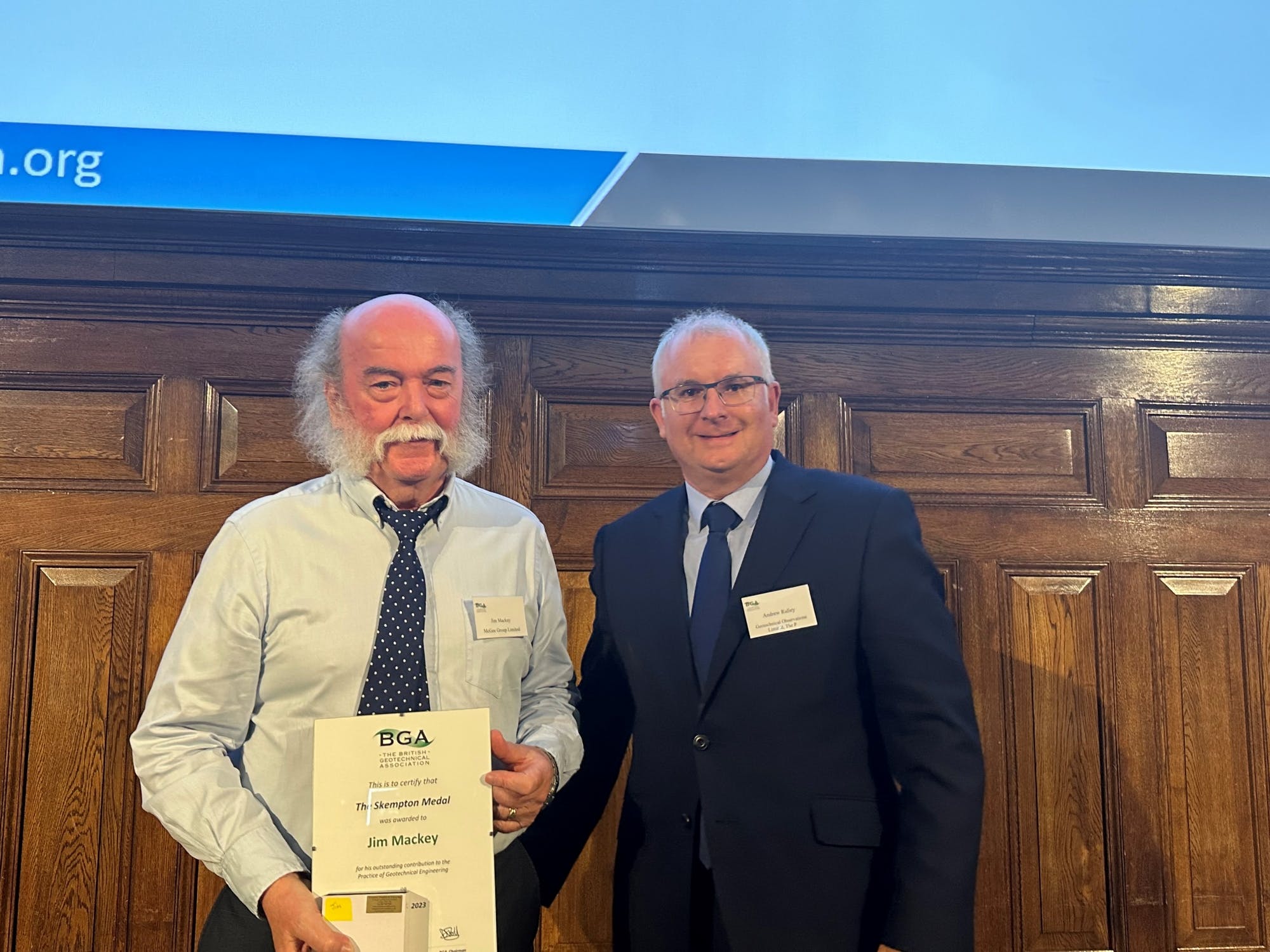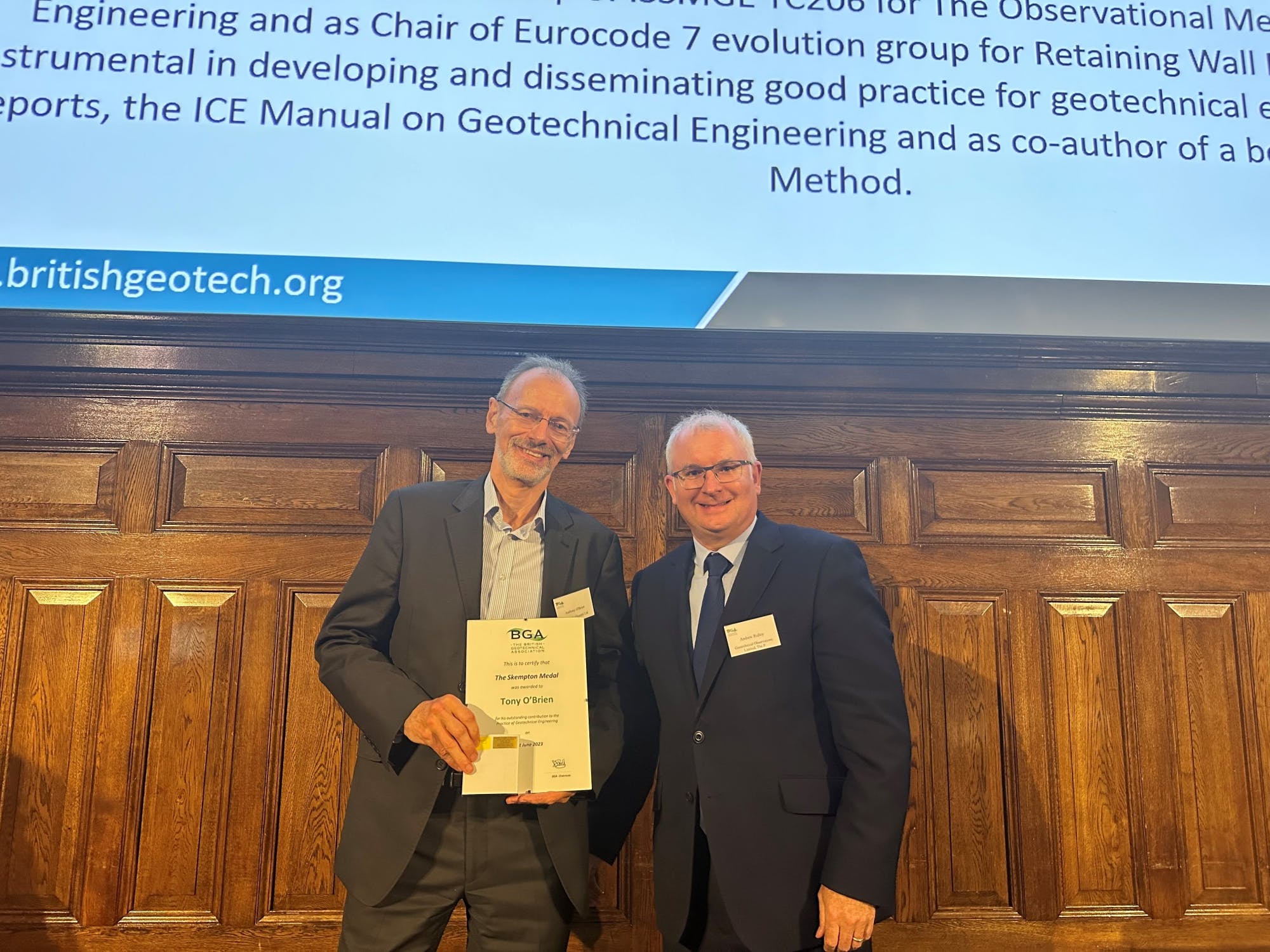The BGA is pleased to announce that Skempton Medals have been awarded to Jim Mackay and Tony O'Brien
Having started his career in the steel fabrication workshop,
Jim progressed from foreman to the Managing Director of McGee. Jim is widely
recognised as being one of the leading construction minds in the London market.
Jim has brought five decades of commitment, industry knowledge, his
understanding of the ground and a wealth of innovative solutions to some of
London’s most complex projects, including the Claridges basement project.

BGA Vice Chair Andrew Ridley presenting the Skempton Medal to Jim Mackey
Tony is a geotechnical expert with more than 40 years’ experience of working on challenging geotechnical projects worldwide, including the recently completed Hong Kong Airport 3rd runway reclamation. Tony has also been active in applied research, notably on climate change effects on infrastructure earthworks. He has promoted the development of geotechnical engineering through membership of ISSMGE TC206 for The Observational Method, TC212 for Piling Engineering and Chair of Eurocode 7 evolution group for Retaining Wall Design. He has been instrumental in developing and disseminating good practice for geotechnical engineers through CIRIA reports, the ICE Manual on Geotechnical Engineering, co-author of a book on the Observational Method and the author of over 50 technical papers.

BGA Vice Chair Andrew Ridley presenting the Skempton Medal to Tony O'Brien
The Skempton Medal is awarded by the BGA to commemorate the life and work of Professor Sir Alec Skempton of Imperial College London, who was a key figure in the development of the science and practice of soil mechanics. Notably he was the 4th Rankine Lecturer and was Past-President of the ISSMFE
The Skempton Medal is awarded to a BGA member who has made an outstanding contribution to the practice of geotechnical engineering over a sustained period of time. The individual will not normally have received other comparable recognition in this country. The individual’s work should be closely associated with, though not necessarily carried out in, the United Kingdom. It is expected that not more than four awards would normally be made per decade.